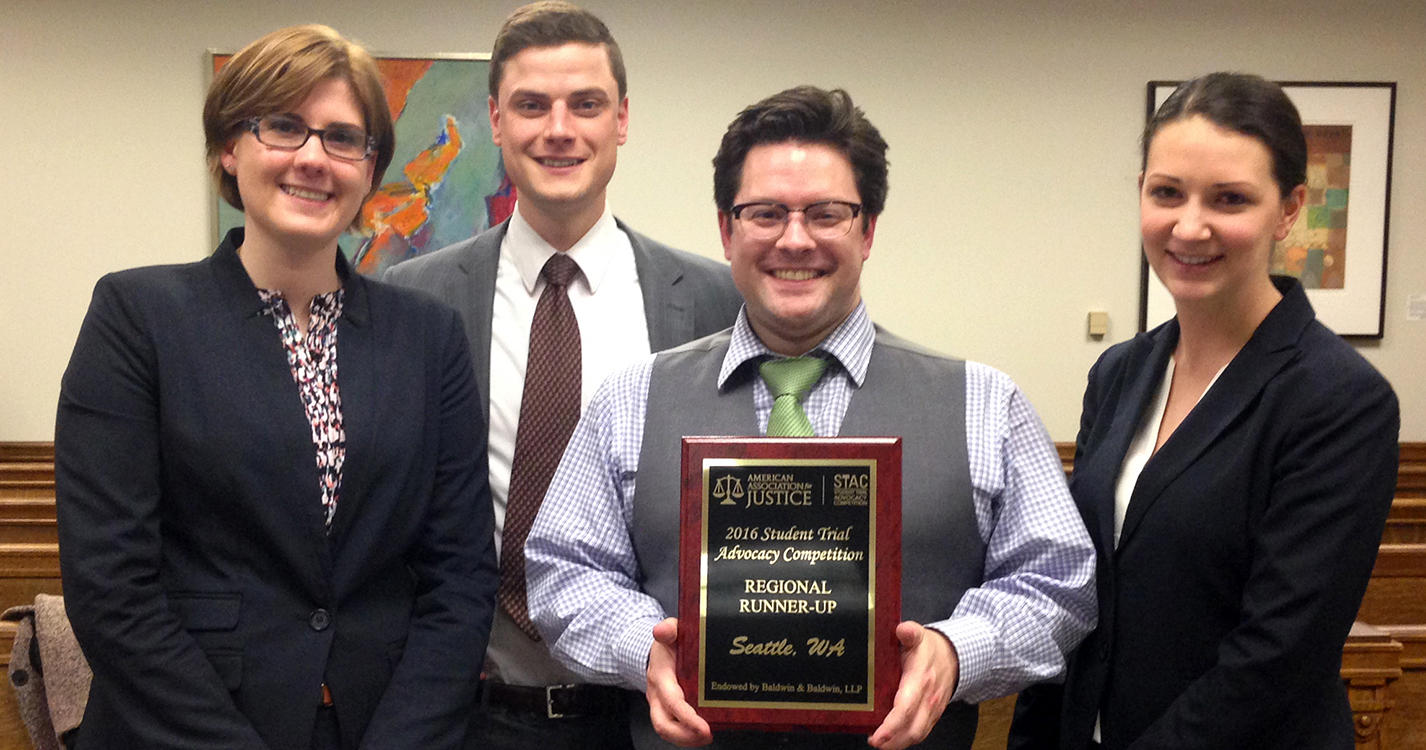After the final round, the presiding judge commented, “Obviously, you are here for a reason—because you're the best teams. And you showed that today.”
AAJ gives each of 16 teams an opportunity to compete in three trials. After the three trials, only the top team from each region advances to the national finals. Willamette’s team advanced to the semi-finals, where they defeated the team from Sturm College of Law at the University of Denver and moved on to the finals where they placed second to one of two teams from Boalt Hall School of Law at the University of California, Berkeley.
Warr has been a stellar representative of Willamette at the AAJ regional competition for three years, which was facilitated by her JD/MBA status, and Hupy prepared for and competed in both the NTC regional competition and the AAJ competitions this year. Potter and Beck stepped in after the school’s local competition had concluded and worked hard to prepare for the regional without the benefit of competing in the school’s AAJ competition.
"Serving as coach to this team was an inspiring experience," said team coach Stephanie Palmblad (JD'12) and attorney at Collier Law in Salem, Ore. "These four students have been incredible to watch. They all have a bright future as advocates both inside and outside of the courtroom."
According to Palmblad, many of the schools competing in the AAJ competition dedicate classroom time or structured trial practice around the AAJ regional problem. Most teams have professors who dedicate time to coaching the programs, and the students prepare for competition by running the trial repeatedly with the two teams they take to the regional competition. These schools have a reputation for training talented courtroom advocates. In comparison, Willamette’s teams in the past decade have been largely student driven, and coached by volunteers from the community. Willamette has rarely had the opportunity to take two teams to the regional competition.
"While the students truly merit the recognition for their outstanding performance, we also recognize that they are helped tremendously by having the coaching, guidance, and support they received from Ms. Palmblad and all the coaches," said Daniel Santos, associate dean for student affairs and administration at Willamette University College of Law.
"These four students are a credit to Willamette’s student-driven moot court program," said Palmblad. "Their dedication of time and effort shone through their performance in Seattle this weekend. I couldn't be more proud of their hard work."

